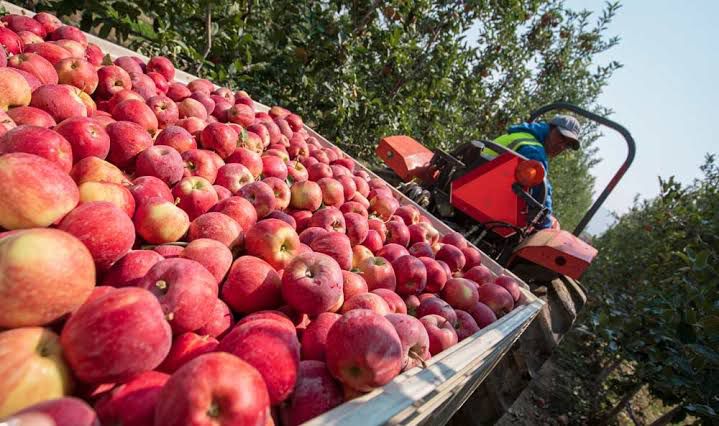Sesame Seeds: A Tiny Seed with Big Export Potential
Estimates suggest Nigeria produces between 500,000 and 530,000 tonnes of sesame seeds annually. This humble seed has become a significant part of our agricultural output and a symbol of our export success. At the end of 2018, sesame seeds overtook other agricultural products as Nigeria’s most exported product, with a total export value estimated to be around N89 billion, marking a significant milestone in our agricultural industry.
Locally grown in Nigeria, in at least 26 sesame-growing states, including Ebonyi, Delta, Jigawa, Bauchi, Nassarawa, Kano, Benue, Sokoto, Oyo, and Taraba. Nigeria is Africa’s second-largest producer of sesame seeds and the seventh-largest globally.
Sesame seeds are in high demand worldwide, including in Turkey, Japan, China, Vietnam, Germany, Greece, France, the Netherlands, India, and many others. This presents an excellent opportunity for sesame seed exporters in Nigeria to enter the export market. In fact, the global sesame seed market is estimated to grow at around 3-4% annually.
This blog will give you all you need to know about sesame seed exportation and its potential market.
Exploring the Sesame Seed Market
Sesame seed export refers to the trade of hulled or unhulled sesame seeds from Nigeria to customers worldwide. Upon reaching the buyer’s facility, these seeds are processed for various food applications, such as sesame oil production, baking ingredients, food powders, and more.
Sesame seeds, known for their rich nutty flavour and versatile applications, have carved a niche in the global market. As an integral ingredient in various culinary traditions, sesame seeds are in high demand worldwide. Nigeria’s sesame seeds, renowned for their superior quality and flavour profile, have captured and held the attention of discerning buyers worldwide, a testament to their consistent quality and global recognition.
The market for sesame seeds is diverse, with demand from various sectors such as the food industry, pharmaceuticals, cosmetics, and more. However, it’s important to be aware of potential challenges, such as competition from other exporters and price fluctuations. In countries like Japan and China, sesame seeds are prized for their role in traditional cuisine and confectionery. Similarly, sesame seeds are valued in Europe and North America for their nutritional benefits and culinary versatility.
Navigating the Export Process
Exporting sesame seeds from Nigeria involves steps and considerations to ensure a smooth and successful transaction. From sourcing high-quality seeds to complying with international trade regulations, exporters must meticulously plan each aspect of the export process, including shipping methods and regulations.
First and foremost, exporters must identify reliable suppliers and ensure that the sesame seeds meet the requisite quality standards, which vary from market to market. Proper storage and packaging are also essential to preserve the freshness and integrity of the seeds during transit. Additionally, exporters must familiarise themselves with export documentation requirements, including certificates of origin, phytosanitary certificates, and export permits.
Building Relationships and Expanding Opportunities
Successful sesame seed exportation relies heavily on cultivating strong relationships with buyers and stakeholders across the supply chain. Establishing trust and transparency in business dealings, fostering long-term partnerships, and opening new opportunities are paramount.
Participation in trade fairs, industry conferences, and networking events can provide invaluable insights and connections within the sesame seed market. By staying informed about market trends, consumer preferences, and regulatory developments, exporters can adapt their strategies and capitalise on emerging opportunities.
Looking Ahead
As Nigeria continues to assert its position as a key player in the global sesame seed market, exporters must remain vigilant and proactive in their approach. By leveraging Nigeria’s abundant agricultural resources and embracing innovation in farming practices and export logistics, we can envision a future where the potential for growth and prosperity in the sesame seed sector is not just promising but limitless, inspiring us to strive for more.
Conclusion
Sesame seed exportation represents a significant avenue for economic growth and development in Nigeria. With its rich agricultural heritage and thriving export market, Nigeria is poised to become a leading supplier of sesame seeds worldwide. By harnessing the expertise and resources available, Nigerian exporters can seize the immense opportunities presented by the global demand for sesame seeds and contribute to the nation’s agricultural prosperity. This not only benefits the exporters but also [specific benefits to the economy and job market].
Exporting sesame seeds from Nigeria presents a lucrative opportunity due to the increasing global demand for sesame in various industries, including food and medicine. As the demand for sesame continues to rise, Pluck Agro Allied is emerging as the top sesame seed exporter in Nigeria and across Africa.
If you’re interested in exploring this opportunity further, please contact our team or email hello@pluckagroallied.com for more information.




